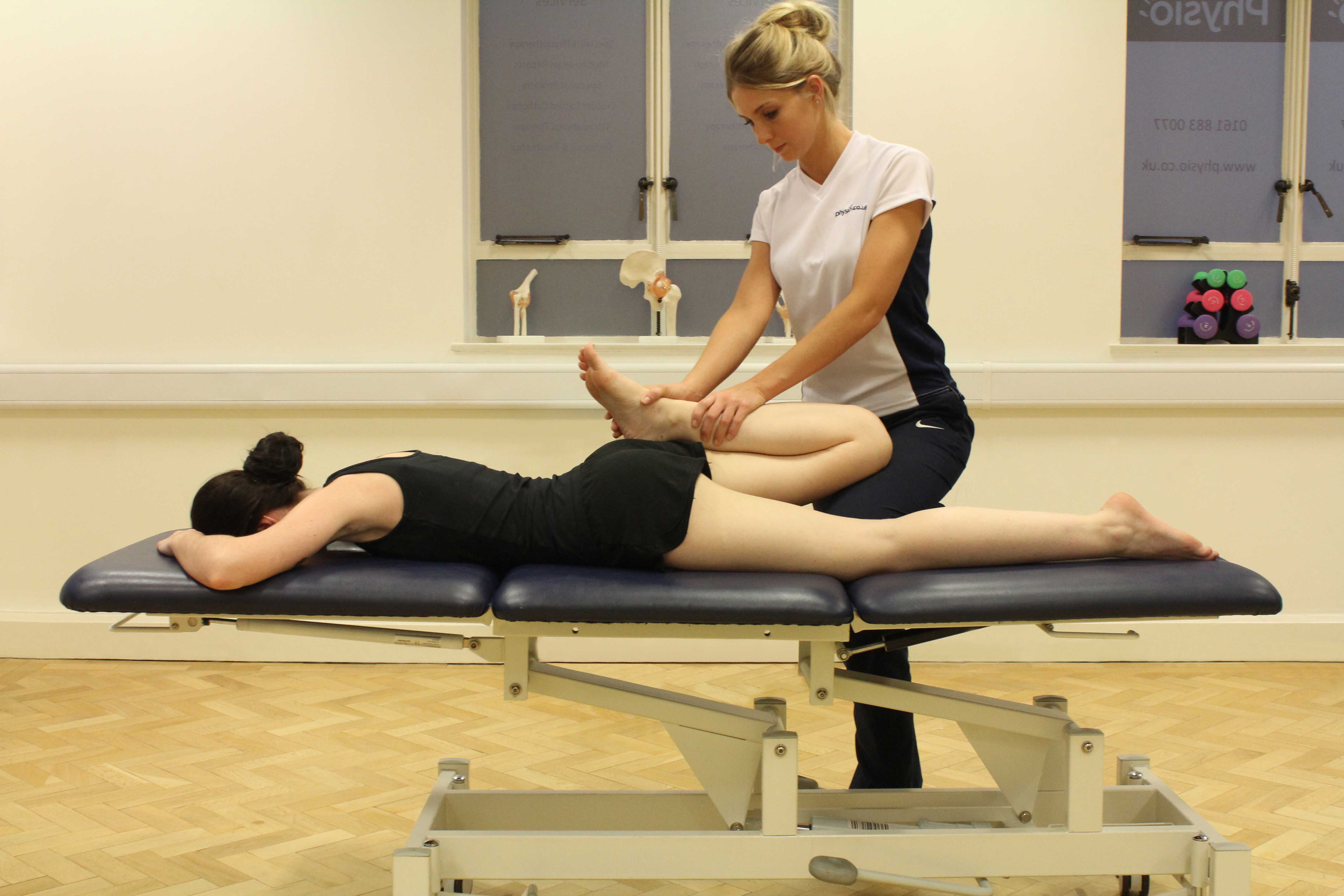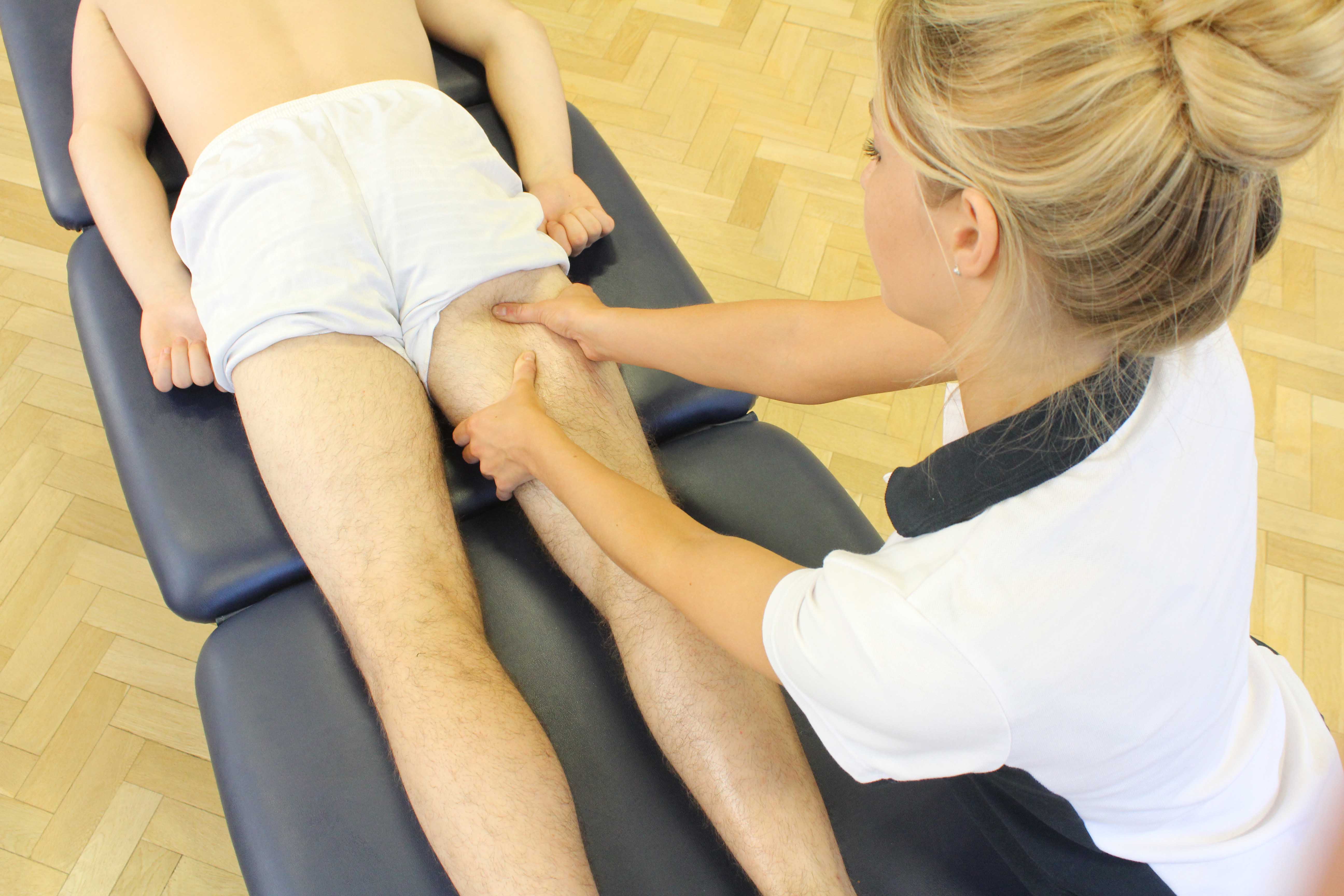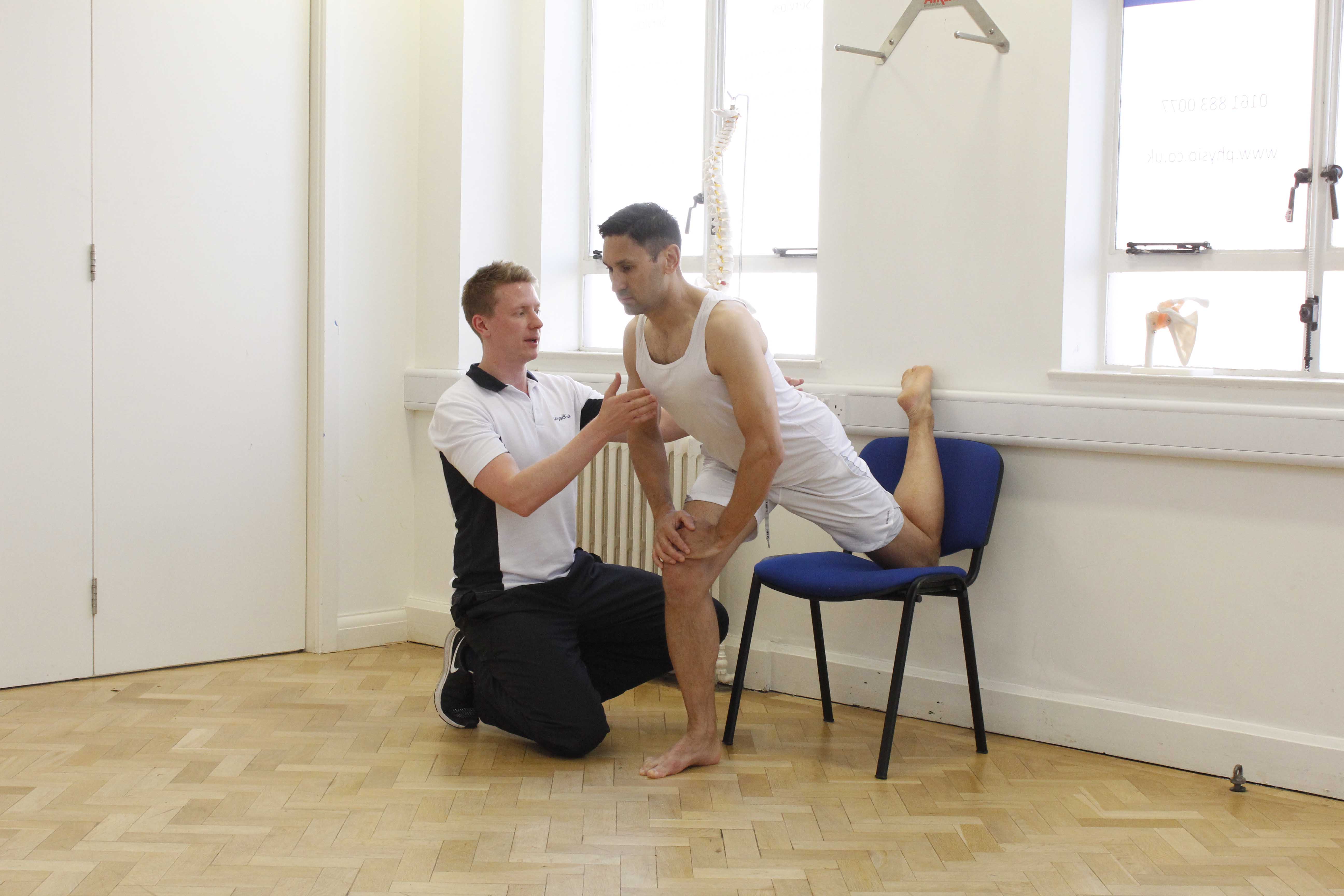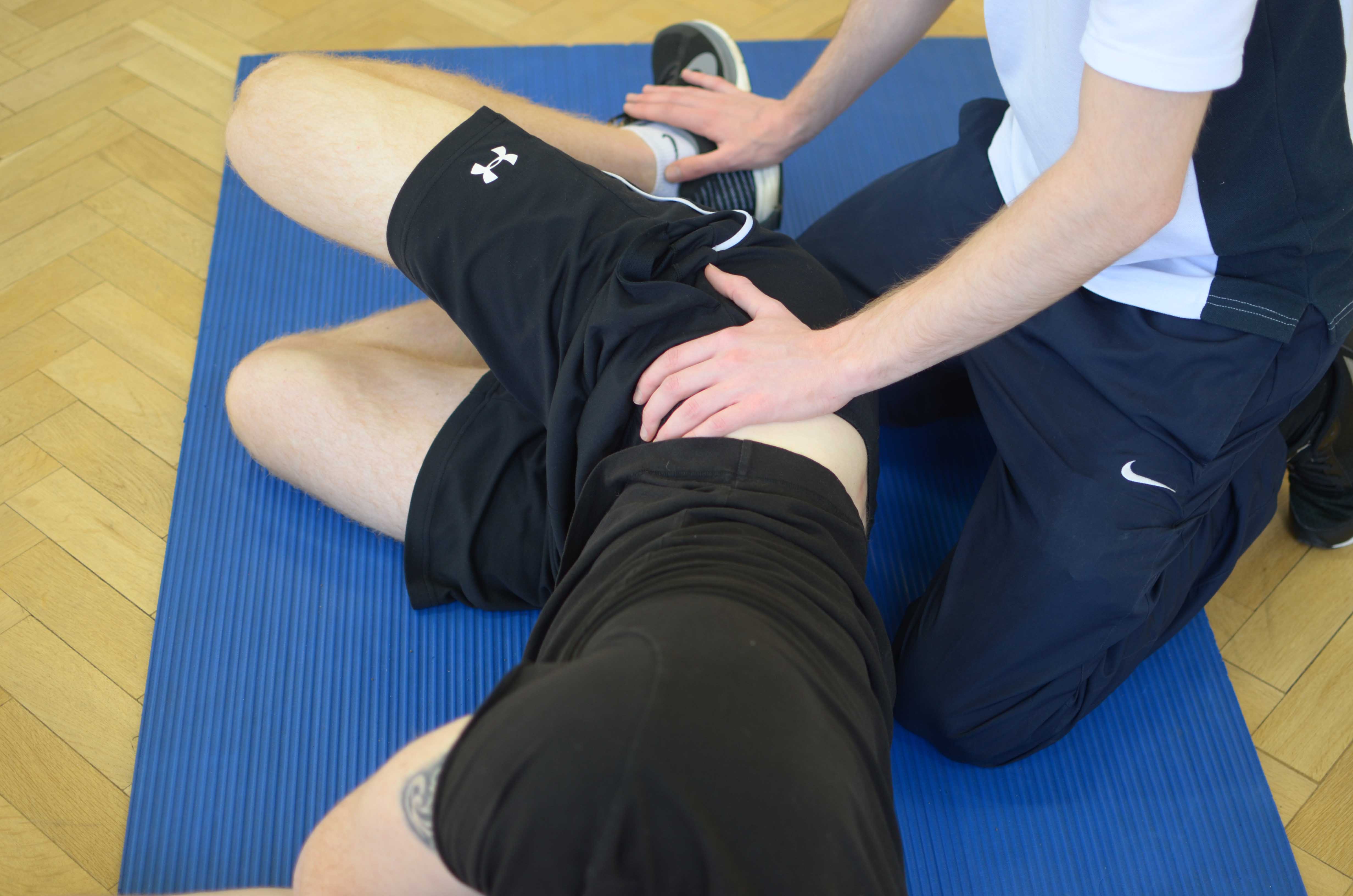What is adductor tendinopathy?
Adductor tendinopathy is damage to the tendons of the adductor muscles high up in the groin. Physiotherapy is a successful treatment for adductor tendinopathy.
 Above: Therapist performing passive stretches to the groin muscles
Above: Therapist performing passive stretches to the groin musclesHow does adductor tendinopathyhappen?
Overuse of the adductor tendonscommonly causesadductor tendinopathies. The adductor muscles and tendons are located on the inside of the thigh and act to bring the legs together. Repetitive use of the adductor muscles and, therefore, the adductor tendons can lead to microscopic tears within the tendons or pulling of the tendon away from the pelvis bone. This is common in sports that involve a lot of side-to-side movement and cutting manoeuvres, such as football and soccer.
 Above: Trigger point massage of the muscles and connective tissues around the hip and groin.
Above: Trigger point massage of the muscles and connective tissues around the hip and groin.What are the symptoms of adductor tendinopathy?
Adductor tendinopathies result in pain felt high up on the inside of the thigh close to the groin. Initially it may only be felt following exercise. For example, it may be first felt on rising the day following participation. Associated with the pain may be stiffness or tightness in the groin region. Typically, these initial signs of adductor tendinopathy are ignored, as they disappear quickly with walking about or applying heat (i.e. a hot shower) over the groin region. However, as you continue to participate, the tendinopathy progresses and the pain in the groin becomes more intense and more frequent. Other key symptoms include:
 Above: Stretch of the muscles and connective tissues of the hip and groin under supervision of specialist therapist
Above: Stretch of the muscles and connective tissues of the hip and groin under supervision of specialist therapistWhat should I do if I have adductor tendinopathy?
Adductor tendinopathy generally does not get better on its own if the cause is not addressed and you continue to exercise. If you have or suspect you have an adductor tendinopathy you should consult your nearest sports medicine professional. In the meantime, you can begin initial treatment. This should consist of icing following participation and regular gentle groin stretching. Icing should consist of crushed ice wrapped in a moist towel applied to the sore area for 15–20 minutes.
Physiotherapy treatment for adductor tendinopathy.
The assistance of a sports medicine professional is important in the treatment of adductor tendinopathy. Initially, they can assist in diagnosing the problem and its severity. This may require the use of imaging techniques such as ultrasound or MRI. From this, the sports medicine professional will be able to determine an appropriate treatment plan. Treatment can include:
 Above: Progressive strengthening hip exercises supervised by experienced therapist
Above: Progressive strengthening hip exercises supervised by experienced therapistWhat shouldn’t you do?
If you have or suspect you have an adductor tendinopathy, you shouldn’t ignore the problem. Your pain may get better as you exercise; however, the exercise you are doing may be interfering with the healing process and causing further damage. This can lead to your injury getting worse such that your pain does not ‘warm up’ and you feel it throughout participation. If this occurs, your recovery may be prolonged and it may take a number of months for you to return to full participation.
Could there be any long-term effects from adductor tendinopathy?
Adductor tendinopathy usually does not produce any long-term effects, as long as it is properly diagnosed and appropriately treated. Recovery usually takes place in a matter of weeks.
To arrange a physiotherapy assessment call Physio.co.uk on 0330 088 7800 or book online.

 0330 088 7800
0330 088 7800

































